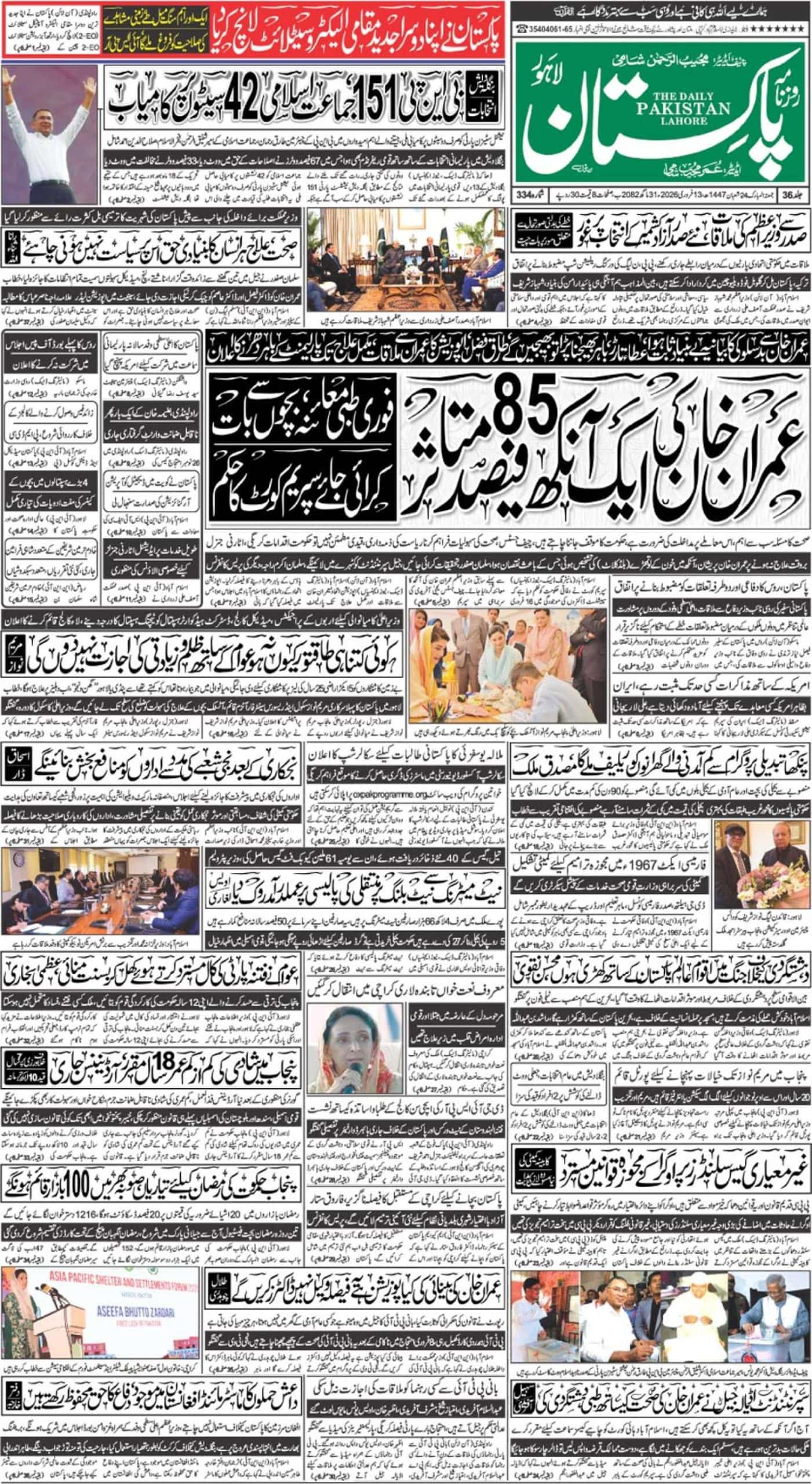While politics has always been at play in sugar industry, the ‘Tareen vs Sharifs’ saga is adding an entirely new bitterness to the ‘sweet’ industry, that the Chief Justice of Pakistan (CJP) would himself have to take care of what otherwise should be a routine matter to be supervised by an ordinary mid-career civil servant comes as yet another indication, so to believe, of continuous decay in governance in the country.
CJP had made it clear in a hearing on Thursday, January 11, 2018 that he would himself be ensuring that sugar mills in South Punjab would be purchasing all the produce of sugarcane growers for the ongoing season at the official rate of Rs. 180 per maund (40 kilograms). The decision came after five sugar mills – JWD of Jahangir Khan Tareen along with ARY, Hamza, Ashraf, and Indus – gave an understanding to the court that they are willing to purchase the entire crop from the protesting farmers.
The situation had arisen because farmers’ produce was not being purchased by the mill owners, as four of the sugar mills had been closed after being declared illegal by the Lahore High Court – illegally relocated, to be precise – last year. The farmers, suffering losses to this important cash crop, had moved the apex court with Vice President of Pakistan Bar Council Ahsan Bhoon as their attorney.
This is not the only case where the apex court had to get involved – the drinking water issue in Sindh and Punjab, the hazardous contaminated milk, exorbitant fees and admissions’ standards of mushrooming medical colleges, illegal and/or irregular appointments – among several others – are all but a few examples of such involvement.
Now it is altogether another debate whether courts – let alone the top court itself – should get involved in such matters or not. It is very natural that the party or coalition in the government would see it as over-expansion of judicial authority into the matters of the Executive, and terms such as ‘judicial activism’ have also been coined from time to time. The court and those posing as on its side would make the case that if the Executive is not playing its due role and the rights of the people are compromised, it has to come forward.
Hence, be it a string of suo moto notices or actions on some appeals, many matters have seen a situation of sorts. It is not all about the so-called ‘Panama Papers’, so to say.
Every industry – and some influential players within each industry – use political power and influence to maximize their profits and multiply their assets. But the sugar industry, and within that, this case, is becoming a peculiar example.
It is usually an annual phenomenon that at the start of every crushing season, November-December when the crop is ripe, we see a ‘tug-of-war’ between growers on one hand and the milers on the other. Millers delay start of crushing, making the farmers sell their produce for lower than the official rate. And middle-men are always exploitative. The payment, when it reaches the farmer, is much lower than it should be. The big landowners and growers – due to the scale of their produce – not only survive but play politics on. It is the smaller farmer who is ‘crushed’, if his sugarcane is not. He barely survives if he is lucky enough to sell.
Coming back to this particular case, for a common observer, it is becoming a Sharifs vs Tareen episode within the industry that accounts for around three and a half percent of agricultural value-added and some 0.7 percent of the total GDP.
Three out of the four mills closed by the Lahore High Court and disallowed from starting the crushing, reportedly, are owned by Sharifs. Growers pleading the apex court said they had sowed the crop keeping in mind that these four mills would also be buying their sugarcane. With the closure of these four mills, only five mills are now left in the area and they, the growers, fear they may not be able to buy their product.
And here is where the court smelled a rat, asking some of the growers’ representatives not to become the ‘mouthpieces’ of ‘others’ – ostensibly a reference to the owners of the closed mills. That bigger among the farmers do play their politics is no secret either. Hiring the services of costly lawyers is all but just one example.
Tareen wins here, so far. And who makes him win here, is important to note. Tareen and the four other mills now promising the court to buy the farmers’ produce are represented by none other than Aitzaz Ahsan – the top legal eagle and a Senator of PPP. Let us mention here for the record that Tareen’s political boss Imran Khan has a number of times publically accused Ahsan’s political boss Asif Zardari and his sister Faryal Talpur of illegally extorting 16 sugar mills using Uzair Baloch. It can’t get dirtier, it sounds. But dirtier will it get, for sure, the Pakistani politics. Let us assume, for our own comfort, that it remains a simple litigant-lawyer relationship; nothing more.
The opening of closed mills or otherwise would not be decided before the next hearing on April 18 this year. The crushing season is supposed to be over by then. Until then, it remains a ‘monopoly of the few’ sugar mills in South Punjab.
Now, the questions are: would the five mills mentioned above abide by their understanding to lift the entire crop of the growers of the area, as promised to the court? Will they be paying the due price, and more importantly, will they do so on a timely basis? What if not? Let us not forget that the same Mr. Tareen was just a few weeks ago declared as not being ‘Sadiq and Ameen’ and his lease agreements of thousands of acres of land in the same area were seen with suspicion, notwithstanding the illegal insider trading that he himself admitted to.
Thus, some of the growers’ concerns that the milers may find ways and may use delaying tactics are not baseless altogether. But the good thing is that CJP is available, even before April 18, to hear complains in his chamber if any.














